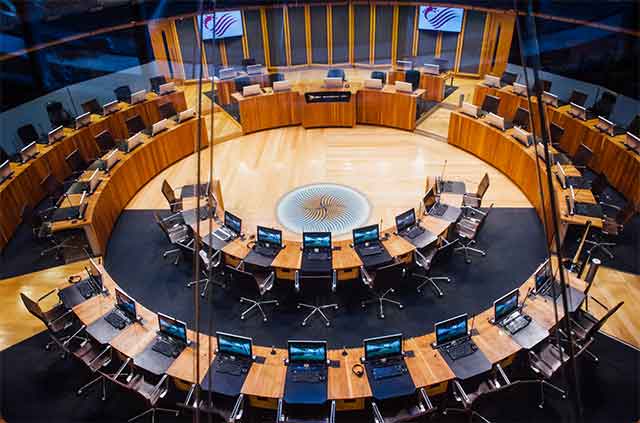Senedd members expressed grave concerns about the impact of the UK Government’s national insurance tax hike on GPs, universities and charities in Wales.
Plaid Cymru leader Rhun ap Iorwerth warned the rise in employer national insurance contributions from 13.8% to 15% in April will have a disproportionate impact in Wales.
He told the Senedd: “Labour are quick to accuse others of fantasy economics whilst their own plans represent nightmare economics for thousands of employers and employees.”
Raising concerns about the impact on job creation and wages, he said employment levels are at their lowest for almost a decade – lower than anywhere else in the UK.
He accused Labour of breaking a manifesto pledge as he pointed to an Office for Budgetary Responsibility (OBR) assessment that three quarters of the cost will be passed to workers.
‘Eye watering’
Leading a debate on November 20, Mr ap Iorwerth called on the UK Treasury to fully cover the added cost to public sector employers in Wales.
He said: “It’s not the private sector only … bearing the brunt. Charities, GPs, universities – sectors already feeling the squeeze, to say the very least – have been taken to the brink.”
He pointed to “eye-watering” bills of £90,000 for some GPs, with the British Medical Association warning some surgeries could close as a consequence.
Mr ap Iorwerth said mental health charity Plattform faces a £250,000 annual bill and Welsh universities, “already crippled by financial challenges”, will face significant further pressures.
Plaid Cymru’s motion urged Welsh ministers to press the UK Government to apply a wider definition of the public sector workforce to include universities, GPs and charities.
‘U-turn’
Peter Fox, the Conservatives’ shadow finance secretary, similarly accused Labour of breaking a manifesto commitment not to raise tax on working people.
The former council leader said: “Time and time again – the chancellor went on TV and made the claim, only to u-turn after they got into power.”
Mr Fox, who represents Monmouth, said even a 1% rise in employer national insurance contributions for the public sector would cost Welsh taxpayers an extra £100m.
He told the Senedd: “The UK Government has said that it will provide funding to cover the cost of national insurance contributions for those workers.
“However, this will still come out of the taxpayer’s pocket … ultimately it is the taxpayers who are going to pay for the Chancellor’s tax increase.”
‘Anaemic’
Luke Fletcher, Plaid Cymru’s shadow economy secretary, warned the national insurance rise will be a drag on an “already anaemic” Welsh jobs market.
His colleague Sioned Williams, who also represents South Wales West, described the chancellor’s “back-of-a-fag-packet” plans as senseless.
She raised concerns about six-figure increases in tax bills for charities including Tenovus, Marie Curie, Citizens Advice Cymru and the Wastesavers Charitable Trust.
Cefin Campbell, Plaid’ Cymru’s shadow education secretary, said the national insurance increase will cost Welsh universities an estimated extra £20m a year.
The Mid and West Wales MS warned: “Without a shadow of a doubt, these additional costs could push our higher education institutions over the precipice.”
‘Fantasy economics’
Labour’s Hefin David said difficult decisions had to be made to fill a £22bn “black hole” left by the Tories but he rejected Plaid Cymru claims of a return to austerity.
Dr David told the Senedd: “Yes, tough decisions have to be made but I think that in the longer term, this is to everyone’s benefit.”
Andrew RT Davies, leader of the Conservative opposition, disputed the “incorrect” £22bn figure, saying the OBR found a £9bn gap.
Replying to the debate, Mark Drakeford stressed that neither he nor the Welsh Government has responsibility for national insurance contributions.
Wales’ finance secretary, who was appointed in September, criticised “fantasy economics” from opposition members on the Plaid Cymru and Conservative benches.
‘Playground’
Deriding the “politics of the playground”, he said: “Both of them are willing to spend money on almost anything; neither of them are willing to raise the money necessary from anyone.”
Prof Drakeford said the chancellor returned national insurance broadly to where it had been as a share of gross domestic product for 13 of the 14 Conservative years.
The former first minister pointed out that the UK Government offset national insurance rises on small employers by more than doubling the employment allowance.
He told the debating chamber or Siambr: “If you want to pay for things, you have to find the money to do so. That is what the chancellor had to do. That is how we will get the money that will come to public services here in Wales.”
Senedd members voted 25-19 against Plaid Cymru’s motion.

